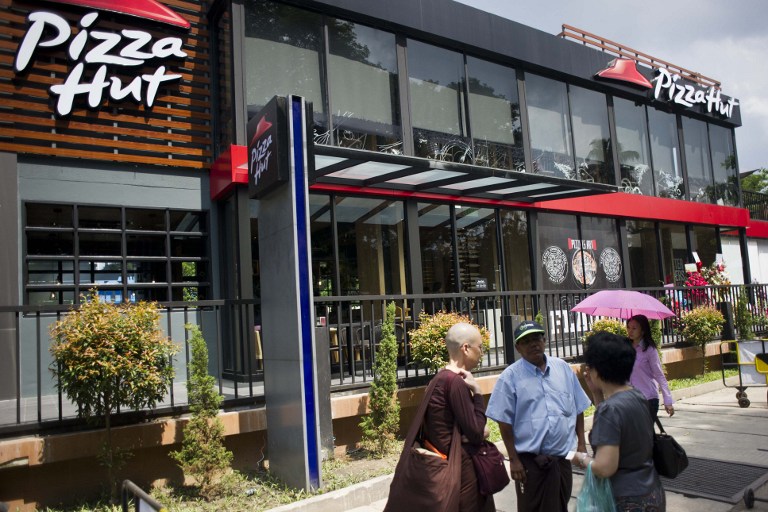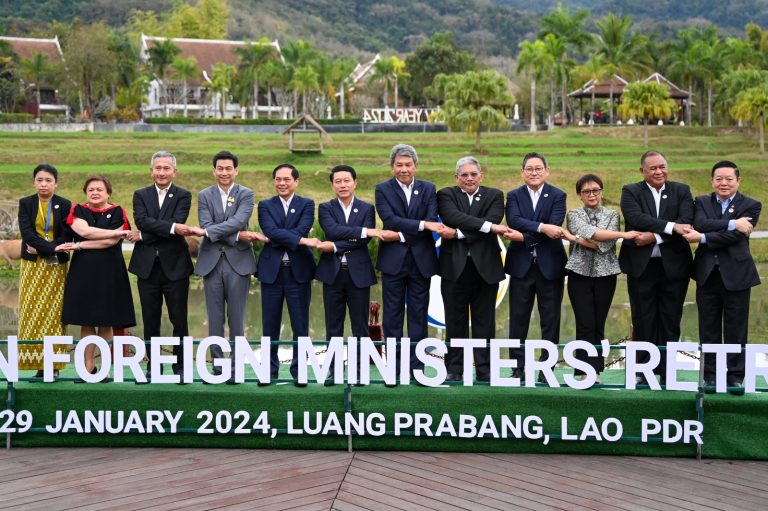Prominent members of the business community have questioned the ability of the National League for Democracy to effectively manage the economy if it forms a government after the election.
Many said they had not read the NLD’s economic policy platform released more than three months ago. The reasons for their disinterest ranged from scepticism over whether an NLD government could implement its policies to the influence of tycoons who have given generously to the party.
The business community’s concerns have been underscored by surveys highlighting the challenges to growth that will test the economic management credentials of the next government, the same challenges that the ruling Union Solidarity and Development Party has had to contend with. The biggest obstacles to equitable growth include corruption, a shortage of skilled labour, and limited access to finance for businesses.
Those who have yet to read the economic policy paper released by the NLD on July 11 include U Aung Min, the general secretary of the Myanmar Industries Association.
“I haven’t read it and I won’t read it because whatever they [NLD] say, we have to watch to see if they will really get into power after the election and [if] they will actually be able to implement their policies,” U Aung Min told Frontier. “Politicians usually talk big, but they don’t carry through 100 percent on their announced policies,” he said.
U Myat Thin Aung, the chairman of Hlaing Thar Yar Industrial Zone, was similarly disinterested in the NLD’s policies.
“It is too early to say that NLD will get power,” said U Myat Thin Aung, who has diversified business interests. “I’m not really interested in politics, but Daw Aung San Suu Kyi can’t run for president, and according to our country’s law the president will form the whole cabinet in his own way. So, the key question is who will be the president, not their policies,” he said.
U Naung Naung Han, an executive committee member of the Myanmar Tourism Federation and the general secretary of Myanmar Travel Association, is optimistic about the NLD’s potential to win the election, but doubts whether the party could introduce dramatic economic changes if it were to form a government.
“Even if they can totally change the political situation, they can’t change economic realities. Some people enjoy more opportunities than others now, and they earn a lot of money from these opportunities. So, they [the cronies] won’t revoke their role,” U Naung Naung Han said.
“On the other hand, the people have great expectations from the next government, and if it cannot change things in line with the people’s wishes, the people will explode with rage,” he said.
U Naung Naung Han also worries about the influence of ‘cronies’, a concern he shares with lawyer U Than Maung, the legal adviser to the nation’s peak business body, the Union of Myanmar Federation of Chambers of Commerce and Industry (UMFCCI).
U Than Maung is worried that the ‘cronies’ will have too much influence over the next government.
“Initially, politicians all talk pretentiously but after that they have been bought up by the elites, then they all turn the same colour,” he said. “The next government needs to act differently, because if it is bought, the country will be in a vicious cycle.”
Prominent tycoons, such as U Tay Za, U Zaw Zaw, and U Kyaw Win have reportedly donated millions of kyats to the NLD and some NLD-linked foundations since 2012.
Economist Dr Aung Ko Ko predicts that the NLD’s relationship with tycoons will create conflict of interest problems for the party if it can form the next government.
“Even if they can totally change the political situation, they can’t change economic realities. Some people enjoy more opportunities than others now, and they earn a lot of money from these opportunities.”
“The NLD can’t eliminate all of the current big guys,” he said. “I think the NLD will work hand in hand with [some of them].”
Dr Aung Ko Ko praises the NLD’s economic policies for being pragmatic. “They don’t aim at the next 20 years, but at the near future,” he said.
He also approved the NLD’s small government policy. “It is very good, because if they reduce the size of the government, it will automatically reduce corruption. Some problems will be solved by themselves.”
Dr Aung Ko Ko said the biggest obstacle for an NLD government would be inheriting an ossified bureaucracy unsuited for managing a modern economy. Another challenge would be bureaucrats’ different mindset to the NLD.
If the NLD could persuade bureaucrats to put the national interest ahead of their personal interests, the problem would be solved, he said.
“The key message for the next government is that it has to inform all people that the reform process will not go backwards,” said Dr Aung Ko Ko, who noted that the NLD was one of only three of the 92 parties contesting the election to have released an economic policy.
The USDP has yet to release its economic platform, although candidates say it will continue the reform process begun by President U Thein Sein.
The NLD’s policies include welcoming foreign direct investment, especially projects involving the transfer of technology and skills. The party also says it will take steps to prevent tax evasion and reform the taxation system.
Many prominent Myanmar corporations are conspicuous by their absence from the annual list of the country’s top 500 taxpayers, and others are ranked near the bottom.
All the businesspeople interviewed by Frontier agreed that a major challenge for the next government will be the economic impact from reduced import tariffs and eased trade barriers after the launch of the ASEAN Economic Community on January 1.
“We can’t compete with ASEAN businesses because we are weaker than them. We have low capital and technologies,” U Myat Thin Aung said.
U Naung Naung Han agreed. “We are not ready to compete with ASEAN firms. So our future is absolutely dependent on the next government. If the businesses from other countries [can compete fairly on the market] our country’s businesses will fail, and the country’s economy will fail too,” he said.
Although the outcome of the election remains unknown and uncertain, a series of surveys in recent years have clearly identified the main challenges to economic development.
They include a joint survey released in 2014 by the Organisation for Economic Cooperation and Development and the United Nations Economic and Social Commission for the Asia Pacific that said corruption was the biggest obstacle to economic growth in Myanmar, followed by a lack of skilled labour.
A survey earlier this year by the Asian Development Bank cited a lack of access to finance as one of the biggest challenges for businesses. At least 99 percent of all firms are small and medium enterprises that will find it difficult to compete against larger, better-financed foreign firms.
In the World Bank’s annual Doing Business survey released last week, Myanmar was still near the bottom of the countries ranked according to the ease of starting a business. However, in the ranking for the overall ease of doing business, Myanmar jumped to 167th place, a big improvement over the previous year’s ranking, when it was rated 189th out of 189 economies.
Businesspeople agreed that tacking endemic corruption will be a huge challenge.
“There is corruption at all levels,” U Aung Min said. “You can see the corruption from the roof to the floor, but I think the next government should solve the corruption on the roof first,” he said.
U Aung Min said “good-intentioned” economic policies aimed at benefitting most of the people would be resented by the elites. “But 99 percent of the people are losing out from the current policies,” he said.
“I think if the next government is really an elected government, it can handle all problems with the support of the people.”







